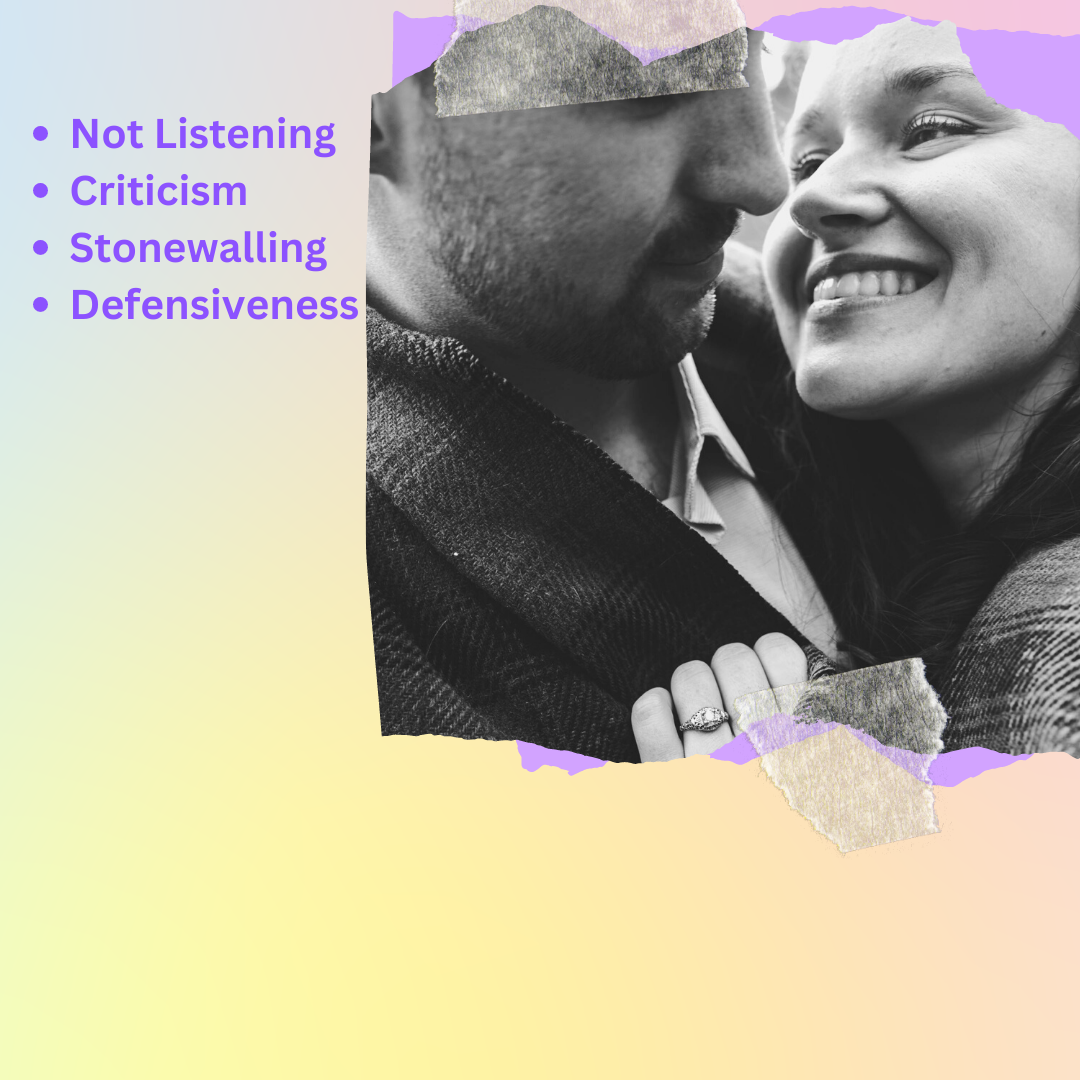Marriage is a union of two individuals who come together to share their lives, goals, and dreams. Marriage is a complex and dynamic relationship that requires constant effort and communication to sustain. Communication is one of the essential pillars of a successful marriage, but there are common communication problems in marriage that everyone must know. It is the means by which partners share their thoughts, feelings, and ideas with each other. However, communication breakdowns are one of the most common reasons why marriages fail. While there are many factors that contribute to a successful marriage, one of the most important is effective communication. When couples struggle with communication, it can lead to a breakdown in the relationship and cause a lot of stress and frustration.

4 Common Communication Problems in Marriage
Here are four common communication problems in marriage that you must be aware of, along with solution on how to address them:
Not Listening
Lack of communication is one of the most significant communication problems in marriage. When partners fail to communicate effectively, they tend to drift apart, and their emotional connection weakens. Silence, avoidance, and emotional distance become the norm, leading to misunderstandings, conflicts, and resentment.
Solution: To overcome this issue, partners need to make a conscious effort to communicate regularly. Setting aside specific times of the day or week to communicate, expressing gratitude and appreciation, and actively listening to each other can go a long way in promoting healthy communication.
Criticism
Criticism is another communication problem that can erode the foundation of a marriage. When partners criticize each other’s behavior, character, or personality, it can damage their self-esteem and create a hostile environment.
Solution: Instead of criticizing each other, partners should practice giving constructive feedback. Constructive feedback focuses on specific behaviors or actions rather than on character or personality. Using “I” statements and expressing feelings in a non-judgmental way can help partners communicate effectively.
Stonewalling
Stonewalling is a communication problem that involves withdrawing from a conversation or shutting down emotionally. When partners stonewall, they stop engaging in the conversation, refuse to respond, or walk away, creating an emotional distance between them.
Solution: To overcome stonewalling, partners need to take a break from the conversation, practice deep breathing or relaxation techniques, and come back to the conversation when they are ready. Partners can also set ground rules for communication, such as avoiding personal attacks, taking turns to speak, and using positive language.
Defensiveness
Defensiveness is a natural response to criticism or perceived attacks on one’s character or behavior. However, when partners become defensive, they tend to shut down or become aggressive, leading to further communication breakdown.
Solution: To overcome defensiveness, partners need to practice active listening, empathy, and validation. Active listening involves giving undivided attention to what the other person is saying and asking clarifying questions. Empathy involves putting oneself in the other person’s shoes and understanding their perspective. Validation involves acknowledging the other person’s feelings and experiences.
Communication is essential for a successful marriage. When partners face communication problems, they must work together to overcome them. By practicing active listening, empathy, validation, and constructive feedback, partners can improve their communication and strengthen their relationship.
Tips and Examples for Addressing Common Communication Problems in Marriage
Here are some tips and examples for addressing the four common communication problems in marriage:
Not Listening
Practice Active Listening
Give your partner your full attention when they are speaking, ask questions to clarify what they are saying, and show empathy and understanding.
Example: “I hear what you’re saying, and I understand how you feel. Can you tell me more about how this is affecting you?”
Criticism
Focus on Constructive Feedback
Frame your feedback in a positive way, use “I” statements instead of “you” statements, and focus on specific behaviors instead of attacking your partner’s character.
Example: “I would appreciate it if we could work together to come up with a solution that works for both of us. Can we discuss some possible options?”
Stonewalling
Create a Safe and Supportive Environment for Communication
Avoid criticism and blame, use gentle start-ups when bringing up a difficult topic, and take breaks if the conversation becomes too heated.
Example: “I know this is a difficult topic, but I really want to work through this with you. Can we take a break and come back to this later when we’re both feeling more calm?”
Defensiveness
Practice Empathy and Understanding
Acknowledge your partner’s feelings and perspective, even if you don’t agree with them. Take responsibility for your own actions and be willing to make changes if necessary.
Example: “I understand why you might feel that way, and I’m sorry if my actions have hurt you. Let’s work together to find a solution that works for both of us.”
By implementing these tips and examples, couples can begin to address their communication problems and build stronger, healthier relationships. Effective communication is key to a successful marriage, and it takes effort and commitment from both partners to make it work.
Final Thought
Effective communication is key to a successful marriage. By being aware of these common communication problems and taking steps to address them, couples can build stronger, healthier relationships that stand the test of time. Remember to practice active listening, focus on constructive feedback, create a safe and supportive environment, and practice empathy and understanding. With these tools, any couple can overcome communication challenges and build a stronger, more fulfilling marriage.



0 Comments